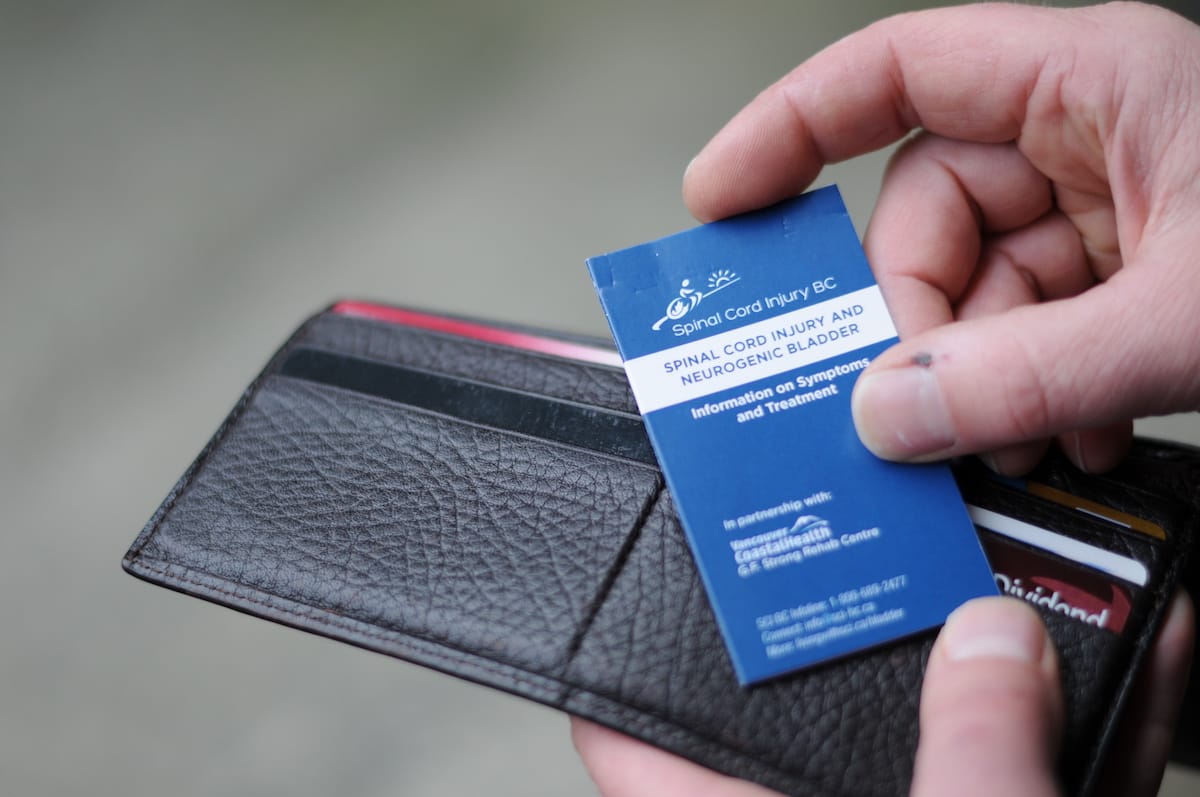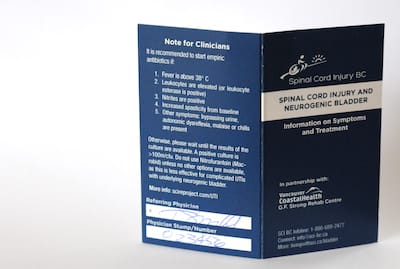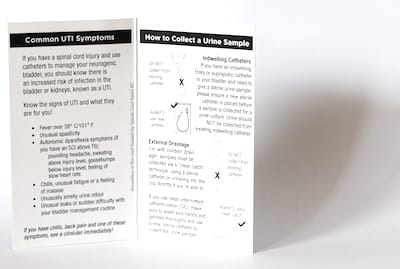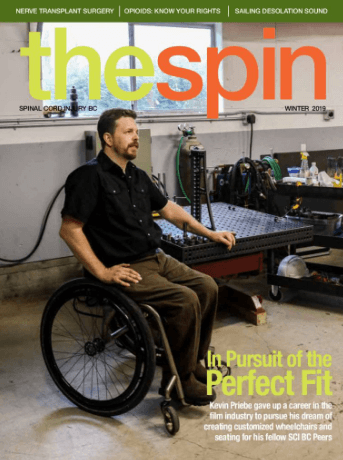
SAMPLES FROM USED CATHETERS CAN RESULT IN FALSE POSITIVES FOR UTI’S
At GF Strong, physiatrist Dr. Viet Vu and Outpatient Nurse Bonnie Nybo routinely ask spinal cord injured patients to provide a urine sample when a UTI is suspected. But they became concerned when they noticed patients drawing samples from their existing Foley or SP catheter without changing to a fresh one.
Samples from a used catheter almost always have high levels of bacteria, and the result is often a false positive—samples show signs of infection when there isn’t one and, in turn, patients are prescribed antibiotics when they’re not needed. Given that antibiotic overuse leads to bacteria becoming resistant, Vu, Nybo and Rehabilitation Consultant Karen Anzai approached SCI BC Resource Centre Manager Jocelyn Maffin with an idea for a resource that would help prevent this.
“I was working with several Peers who were dealing with UTIs on both ends of the spectrum,” says Maffin. “Some on endless rounds of antibiotics, and some uncertain about when to go to the doctor despite serious symptoms of kidney infection.”

WALLET CARD DEVELOPED TO PROVIDE VALUABLE INFORMATION FOR PEERS
Together, Maffin, Vu, Anzai and Nybo agreed that a wallet card Peer resource would be a perfect way to address this knowledge gap—it puts best practice evidence in the hands of the Peer, and also supports discussions with physicians.
“I was seeing that Peers needed something that helped them understand how and when to seek treatment for UTI symptoms,” says Maffin, “and the clinicians at GF Strong wanted Peers to know exactly how to produce a proper urine specimen so that their physicians had an accurate picture to base treatment decisions on.”
The new wallet card, was carefully and collaboratively developed by Maffin and the clinicians, with best practice evidence gleaned from the SCIRE (Spinal Cord Injury Rehabilitation Evidence) resource.


INFORMATION FOR FAMILY DOCTORS
The card is relevant to anyone with SCI who is a catheter user, but especially valuable for those with recent injuries who are returning home and will be looking after their ongoing care with their family doctor. “Their doctor may not have any other SCI patients, and may not specify that a specimen needs to come out of a clean catheter,” she says. The card would serve as a reminder to the Peer about the specific needs of being a catheter user, who has a risk of UTI’s. It’s also a way to share this information with their physician in the event of a UTI.
There’s also a space for the SCI specialist information and signature which is there to emphasize its credibility when it’s shared with another physician. There’s also a special link to SCIRE so that a physician or ER clinician could look up that evidence if needed.
“Ultimately, we want these cards to not just inform Peers, but equip them to have informed conversations with their physicians and enable them to get the best care for their SCI and its complications,” says Maffin.
Usually, you can pick up a printed copy of the new UTI wallet card at GF Strong from your clinician, or at the SCI Resource Centre or from the urology clinic at Blusson Spinal Cord Centre. Seeing as we’re all self-isolating, please just email us at info@sci-bc.ca or call our Infoline at 1-800-689-2477 and we’ll send a card to you by mail. Alternatively, you can download the digital file here and print it at home.
If you would like more information about bladder management and neurogenic bladder, please visit this page in Living with SCI.
This full article originally appeared in the Winter 2019 issue of The Spin. Read the full version alongside other stories, including:
- Nerve Transplant Surgery
- Opioids: Know Your Rights
- Sailing Desolation Sound
- and more!
Read the full Winter 2019 Issue of The Spin online!




